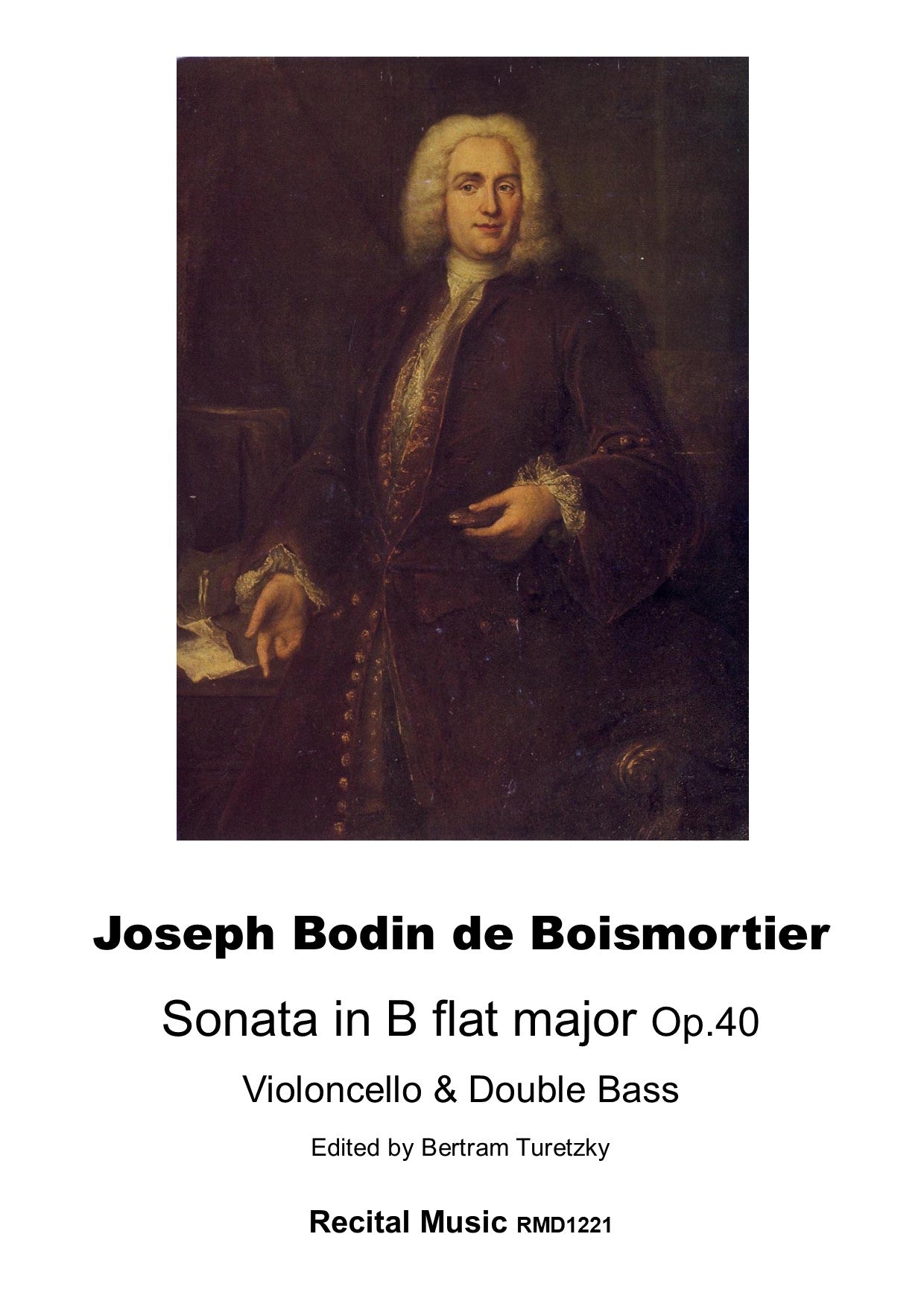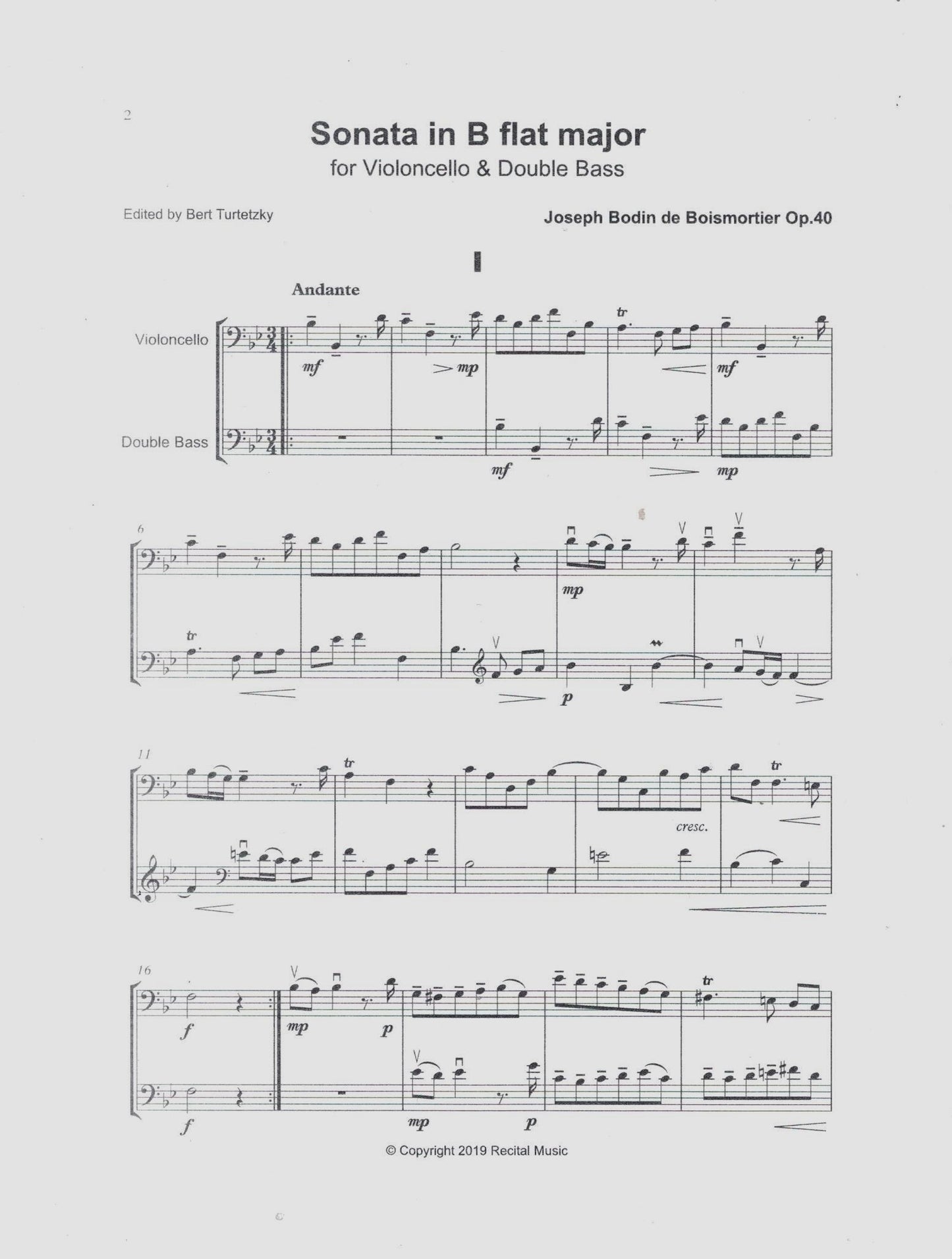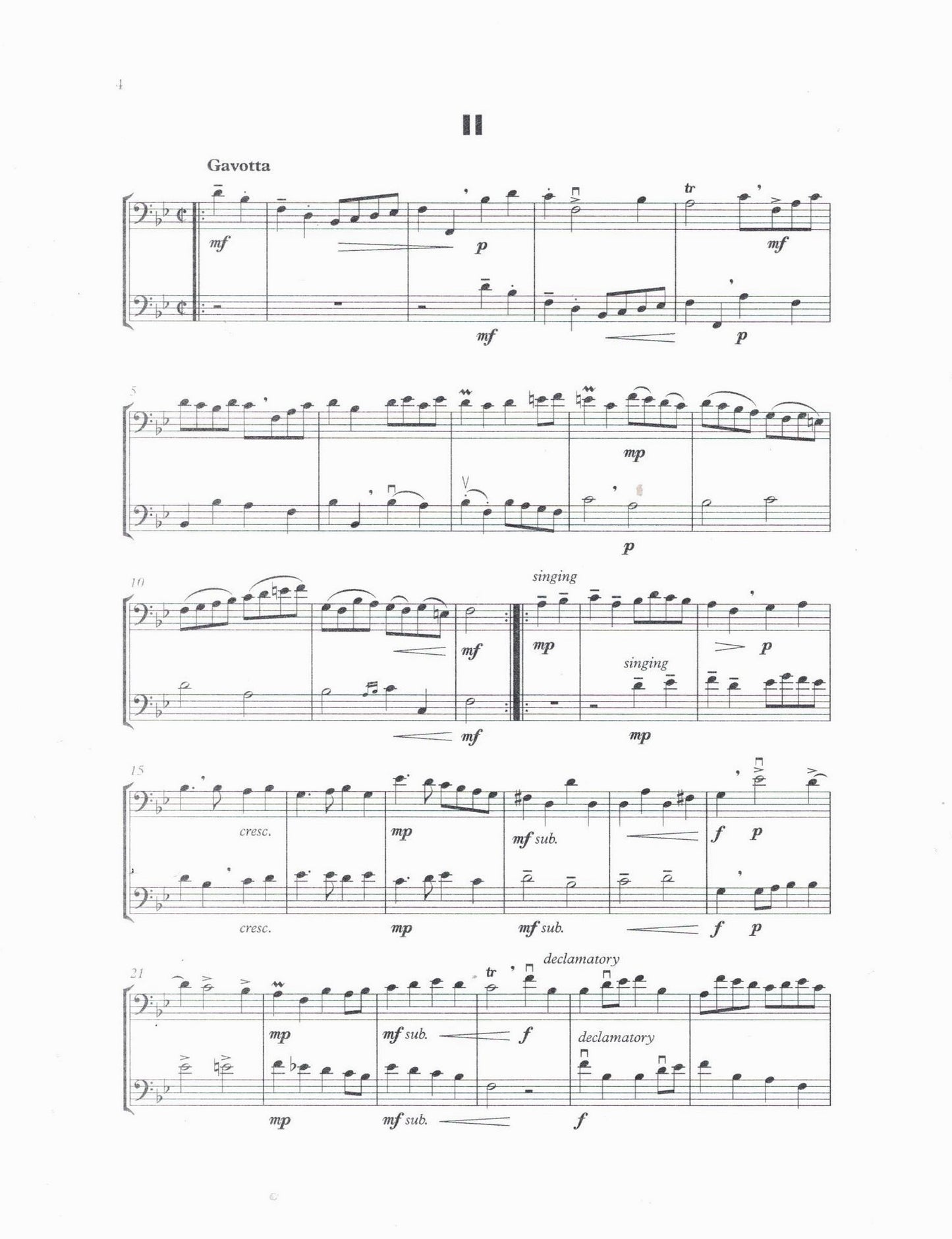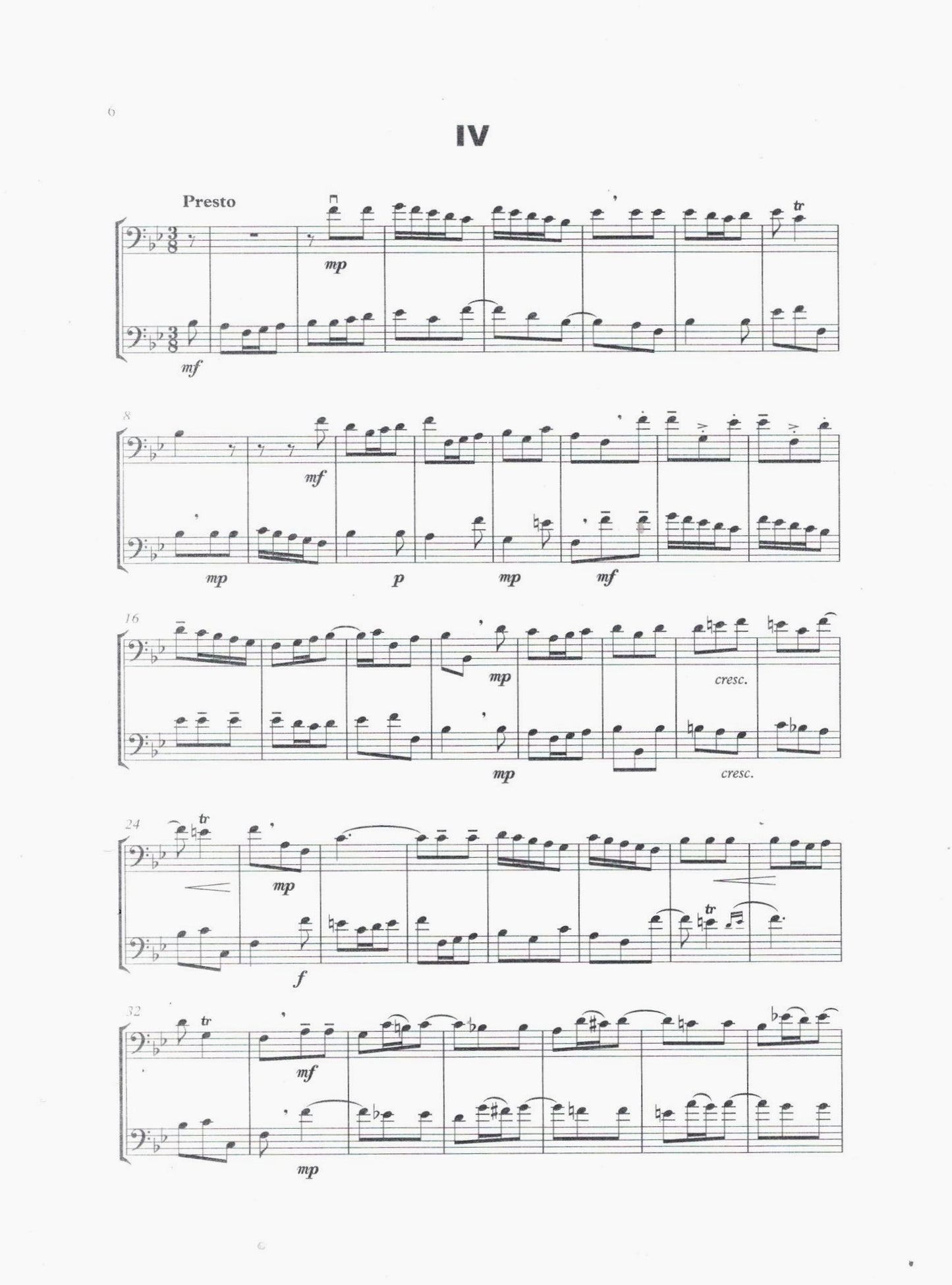David Heyes
J.B. de Boismortier: Sonata in B flat major for violoncello & double bass (ed. Turetzky)
J.B. de Boismortier: Sonata in B flat major for violoncello & double bass (ed. Turetzky)
Couldn't load pickup availability
About the Sonata
Sonata in B flat major Op.40 for violoncello & double bass is in four contrasting movements and was edited by American bassist-composer Bertram Turetzky.
The opening Andante is dramatic and confident with effective canonic interest, contrasting a more dance-like Gavotta full of rhythmic energy and momentum. A lyrical Andante in G minor is elegant and stylish, only 12 bars long, ending with an exciting and exuberant Presto abounding with good humor and cheerful invention.
About the Composer
Joseph Bodin de Boismortier (1689-1755) was a French Baroque composer writing a wealth of instrumental and vocal music. He was one of the first composers to have no patrons, having been awarded a royal license to engrave music in 1724, and became a wealthy man from the sales of his music. Boismortier was a prolific composer and he, alongside Rameau, lived through the Rococo age of Louis XV both writing music of great elegance and sophistication which proved popular with performers and audiences alike.
About the Arranger
Born on 14 February 1933 in Norwich, Connecticut Bertram Turetzky took up the tenor banjo at the age of 12 or 13, he switched to the guitar in high school, having fallen in love with jazz, and then changed to the double bass which he described as '...the core of everything, the glue between the harmony and the wind instruments.' He subsequently studied at New York University and Hartt College of Music of the University of Hartford and slowly changed direction from jazz to everything else a bassist is asked to do - symphony, opera, contemporary, jazz, teaching and recitals, featuring many of the new works that were being written for him. For many years he combined his hectic performance schedule with teaching, first at the Hartt School of Music and from 1968 as Professor of Music at the University of California, San Diego, where he retired as 'Distinguished Professor Emeritus' only a few years ago.
Alongside his passion for contemporary music, Bert has also played a wealth of music from the 15th and 16th-centuries. He has transcribed works for every possible combination of instruments, but usually including the flute which was always played by his wife Nancy, and the husband and wife partnership have been fearless in their promotion of music for this rare instrumental duo. The vast majority of repertoire for flute and double bass today was either written for Bert and Nancy, or inspired by them. Bert has an interest in any repertoire which features the double bass and has championed many chamber works which are unknown or have been forgotten.
Bert has composed and transcribed many works for double bass. For some years his interest in the music of Domenico Dragonetti (1763-1846) was a passion and in the early 1960s he edited six waltzes for unaccompanied double bass by the great Venetian bassist. Although Bert Turetzky has spent most of his life playing modern music and creating every possible sound and noise that the double bass can produce, his own compositions, on the whole, are far more traditional and accessible. He has composed a whole range of music for double bass, probably for his own use or for his students, and into his 80s the desire to compose and perform are as strong as ever. [David Heyes/June 2015]









